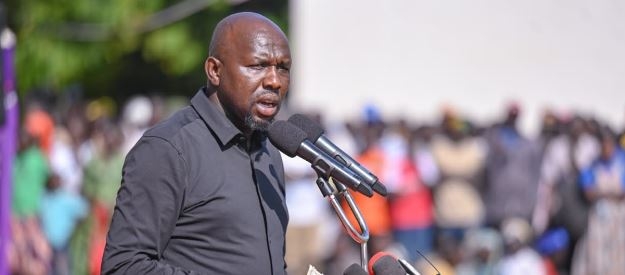No donkey, no life – this is the message which some women from Ngusueni and Masaani areas of Machakos and Kitui counties, respectively, relayed to this reporter when the Star visited them on Tuesday.
During a fact finding mission to understand the situation in the two counties, both classified under arid and semi-arid areas, the Star established that women who are the most affected by drought resulting from climate change were working hard to mitigate the situation.
To residents of these two areas alongside their neighbours, a donkey is a very important animal, more important than anything else including cattle.
They said that a home without a donkey is categorised as poor.
Women from these areas have taken advantage of some water projects implemented in their communities through partnerships between Machakos county government, Inades Formation Kenya and Brooke East Africa.
Several residents said they had educated their children through water supply in the schools where their children learn.
“I own one donkey that helps me do almost everything, it helps me feed and educate my three children,” Beatrice Kikubi, 70, told the Star at a water point in Ngusueni, Yatta subcounty.
Kikubi, who is a member of one of the self-help groups, had taken her donkey to drink water at a watering trap constructed specifically for donkeys, as well as collect water from the kiosk for domestic use.
She said she has depended on the donkey for decades, since she was a young woman.
Kikubi's story isn't different from other women who spoke to this reporter.
“I came to Ukambani from western Kenya after I got married here. I feared donkeys, but I later realised that they are friendly and beneficial,” Monica Wekesa, a mother of seven, said.
Wekesa said she had educated her children, some up to university through donkeys which she uses to supply water to schools. She said her pay is converted to school fees.
Currently, she said three of her children were in different secondary schools. One is a Form 3 student at Bakhita Kyua Secondary School in Katanga, Machakos county.
At the school, Wekesa said she supplies water worth Sh600 each per day and she isn’t paid. Instead, the money is converted to school fees.
A senior teacher from the school confirmed that some parents were unable to afford school fees hence pay in kind.
“As you are aware this region is very dry hence there is a lot of poverty. We accept fees in kind. Parents supply water, firewood and goats, among other things, and we convert the payments into fees. Most of casual labour here is provided by parents who work for fees,” a teacher who declined to be mentioned said.
Women use the donkeys to draw water from the few electric boreholes located tens of kilometres from their homesteads.
The women and men, all who own donkeys, have formed self-help groups to manage and maintain the boreholes.
They charge Sh20 for a jerrycan to supply water to the residents without donkeys. Registration for new members is Sh150. The water points are community-owned.
Inades Formation Kenya representative Onesmus Mwangangi said as an organisation, they did research and found out that a donkey is a sidelined animal in terms of treatment and feeding.
“When the government plans for treatment of other livestock, donkeys are never considered. This is the reason why we are in partnership with Brooke East Africa in the programme of taking care of the animals,” he said.
“Families that depend on donkeys, especially women from ASAL areas, struggle with issues of fetching water. They depend on donkeys that are neglected. It means that they continue suffering because when a donkey is sick, it keeps being used until it dies.”
Mwangangi further said it was good to take good care of donkeys by feeding, treating and letting them enjoy their freedoms just like other animals.
“KENDANT and Machakos government drilled bore holes in these areas. Inades donated tanks and distributed water closer to the people. We also constructed water kiosks, towers and watering traps where donkeys drink water when they come to collect it,” he said.
“These communities are able to sustain the projects since we started them. They tremendously benefit from the projects.”

















